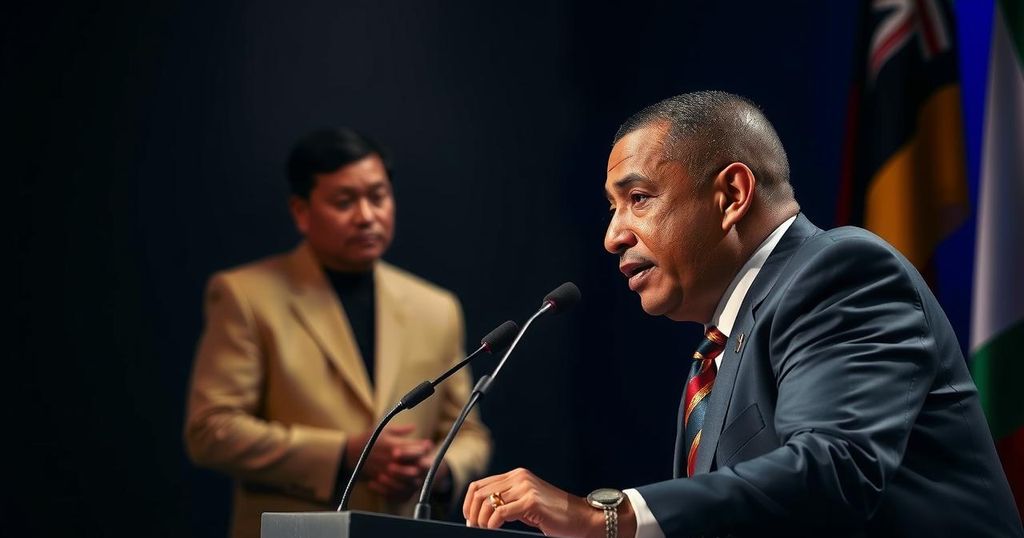Mauritius is holding elections amid accusations of widespread government wiretapping. Approximately one million eligible voters will participate as high-profile politicians are implicated in recorded discussions. Prime Minister Pravind Kumar Jugnauth aims for re-election against opposition leader Navin Ramgoolam. Key voter concerns include rising living costs, drug-related issues, and government transparency. This election will critically influence Mauritius’s political stability and governance.
Mauritius is currently navigating a tumultuous election period marked by serious allegations of wiretapping involving government officials. Approximately one million eligible voters are preparing to cast their votes, amidst controversies that have surfaced through leaked recordings implicating high-ranking politicians. This election marks the twelfth national contest since independence in 1968, highlighting Mauritius’s enduring commitment to parliamentary democracy, typically characterized by high voter turnout and fair electoral practices. The recent scandal began with a TikTok account ‘Missie Moustass’ releasing audio clips purportedly capturing conversations between top politicians concerning various public figures, including law enforcement officials and journalists. Notably, a conversation allegedly involving the police commissioner raised concerns over possible alteration of a post-mortem report. Prime Minister Pravind Kumar Jugnauth, amidst calls for transparency, has initiated an inquiry into these claims while asserting the recordings could be manipulated. As voters prepare for the elections, they will choose representatives for the National Assembly comprising 70 members, with 62 elected directly. Historically influential political parties include the Militant Socialist Movement (MSM), the Labour Party, and the Mauritius Militant Movement (MMM). Prime Minister Jugnauth, seeking re-election, leads the MSM and is credited with economic recovery following the pandemic. His opponent, Navin Ramgoolam from the Labour Party, has emphasized reforming wiretap laws, although he faces scrutiny over his past administration’s issues. Key issues currently facing the nation include the rising cost of living, prevalent drug use, and concerns over governmental transparency. The recent social media ban, purportedly for national security, provoked widespread criticism and allegations of governmental overreach. Additionally, as indicated by recent surveys, high commodity prices and drug abuse rank high on the public agenda, influencing the dynamics of the election. As such, the upcoming elections in Mauritius not only represent a pivotal moment for its democratic framework but also reflect public sentiment regarding governance and accountability. The outcome of this election could decisively shape the path for Mauritius in addressing its current challenges and determining its political stability.
The upcoming elections in Mauritius are occurring under the shadow of a significant wiretapping scandal, which has sparked widespread public concern and agitation. As a stable democracy in the Indian Ocean, Mauritius has successfully conducted multiple elections since gaining independence, maintaining a consistent tradition of high voter turnout and competitive political discourse. This election marks a critical juncture, as it unfolds amid serious allegations against government officials and rising public discontent surrounding pressing social issues.
The upcoming elections in Mauritius, marked by allegations of wiretapping and political upheaval, represent a crucial turning point for the nation’s democratic principles. With major parties vying for influence amidst key public concerns, this election could significantly impact Mauritius’s governance and social landscape. The decisions made at the polls will reflect not only voter sentiments but will also set the stage for addressing the pressing economic and social challenges facing the country.
Original Source: www.aljazeera.com






